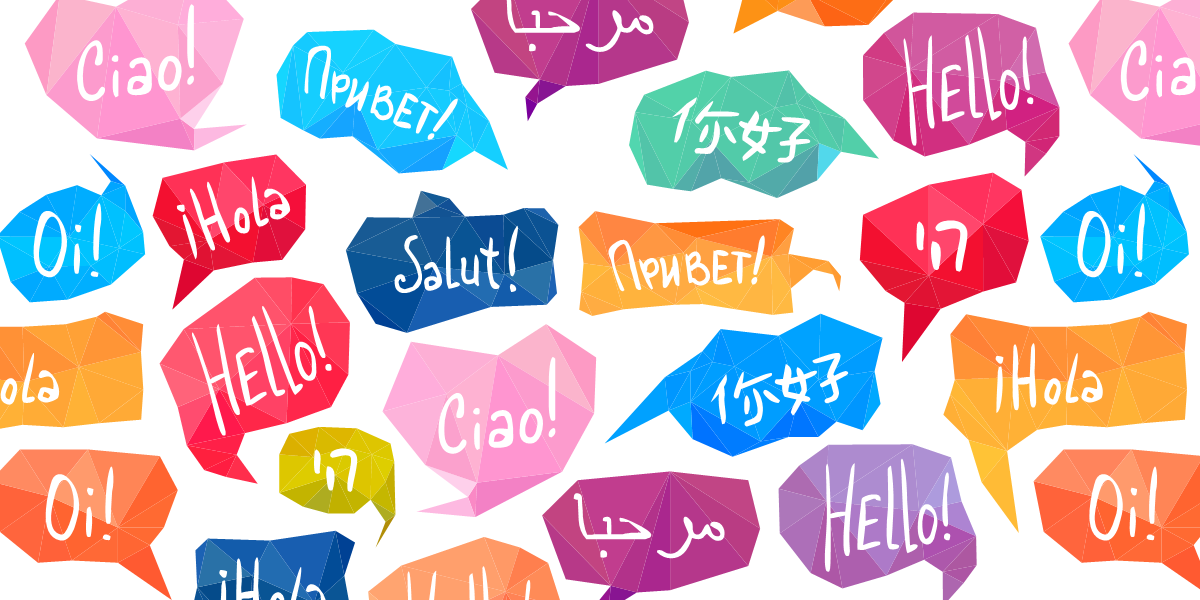The teachings of the Bahá’í Faith encompass profound philosophical principles that focus on unity—both of humanity and in individual expression. Yet, how does one articulate these lofty ideas? Can we truly ‘speak Bahá’í’ without a tangible lexicon? This question serves as an intriguing portal to explore the fundamental principles of the Bahá’í worldview and the significance of language in promoting unity.
At the forefront of Bahá’í teachings lies the concept of unity in diversity. The Bahá’í Faith posits that the valorization of difference is not just acceptable but necessary for the flourishing of humanity. Therefore, one might ponder: How do we encapsulate the essence of this notion in our everyday discourse? To ‘speak Bahá’í’ is to embrace the richness of human experience, to articulate a vocabulary steeped in tolerance, empathy, and understanding. This challenge calls for mindful engagement with language and an attunement to the collective narratives that shape our world.
In adhering to the principles of unity, the Bahá’í Faith eloquently illustrates a path whereby communication transcends mere transactional exchange and metamorphoses into a medium for building bridges. Central to this endeavor is the understanding that effective communication necessitates a robust vocabulary—the lexicon of unity. Terms such as “consultation,” “justice,” and “collective consciousness” encapsulate core Bahá’í principles yet require expansive definitions and contextual appreciation to foster an authentic dialogue.
Consultation, for instance, embodies an essential component of Bahá’í practice. It implores individuals to engage not simply as participants but as co-creators of knowledge. This involves relinquishing ego to prioritize the truth—an oft-challenging transformation for many. In conversations, the speaker must encapsulate a tone of humility and openness. Posing questions rather than making declarative statements encourages a spirit of collaboration that can, in turn, lead to more nuanced insights and stronger connections.
Justice is another cornerstone of the Bahá’í Faith, and its articulation demands precision. The term is frequently misunderstood within various societal contexts. In Bahá’í discourse, justice is not merely retributive or punitive; rather, it embraces a fundamentally restorative dimension, focusing on the well-being of the community as a whole. When conversing about justice, framing discussions around restoration and healing invites more constructive dialogue, fostering understanding among divergent perspectives and laying the groundwork for collective action.
Now, consider the intersection of language and community. The Bahá’í teachings advocate for collective consciousness, an understanding that individual thoughts can contribute to a greater societal ethos. Speaking Bahá’í involves not just the individual lexical choices but also an awareness of community narratives. This consciousness becomes paramount when addressing controversial issues, where language can either polarize or unite. Caution must be exercised to avoid terms that perpetuate division. Instead, employing language that promotes collective strength serves as a vehicle for unity.
Moreover, there is an essential playfulness in the Bahá’í language of unity. Paradoxically, while the terminology may be serious, the spirit in which it is conveyed often invites lightheartedness. The Bahá’í Faith encourages its followers to approach dialogues with a sense of joy and curiosity. This inclination can transform challenging discussions into collaborative epiphanies, where participants feel safe to explore the complexities surrounding issues. The spirit of play in discourse can reduce defensiveness and embolden individuals to express their truths.
However, with these opportunities come challenges. One must consider cultural nuances and differing interpretations of terminology when engaging in dialogue. The phrase “spiritual solution” may resonate differently across divergent cultural landscapes. This presents an inherent challenge: how to ensure that one’s language promotes unity while acknowledging the diversity of interpretation and experience. Language must be contextual and adaptable, requiring individuals to be meticulously aware of their audience.
Furthermore, the language of unity also necessitates active listening—a crucial yet often overlooked aspect of communication. Speaking Bahá’í involves as much attentive listening as it does articulate speaking. Listening with an open heart allows for a deeper understanding of the nuances in others’ perspectives, creating fertile ground for unity. The efficacy of consultation as a tool for communal dialogue significantly increases when all parties are engaged in genuine listening, fostering a shared ethos that extends beyond individual perspectives.
In the end, to ‘speak Bahá’í’ is not only an exercise in vocabulary but also an embodiment of principles that promote unity in diversity. It necessitates a commitment to articulate not just words but also ideas that resonate with the aspirations of humanity. Through embracing language that fosters understanding, justice, and community, one positions themselves to contribute meaningfully to dialogues of global significance. The playful challenge remains: can we continually navigate the complexities of language with the grace and vision embodied by Bahá’í teachings? By fostering an adaptable lexicon that aligns with the principles of unity, we inch closer to realizing that noble goal.
Ultimately, this exploration of Bahá’í language encourages us to continually reflect upon how our expressions can embody the very essence of unity. How can we, in our own spheres of influence, advocate for a language that brings people together rather than driving them apart? With conscientious engagement, we can meaningfully foster the connections that Bahá’í teachings envision for a harmonious world.
